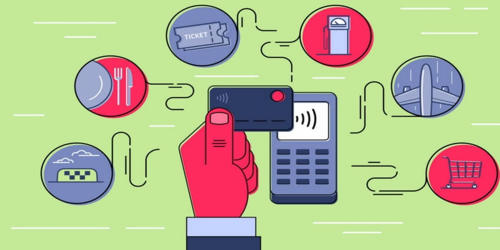A cashless society describes an economic state whereby financial transactions are not conducted with money in the form of physical banknotes or coins, but rather through the transfer of digital information between the transacting parties. In today’s world of fast technological change, progressive dematerialization, and globally interconnected production and financial dynamics, alternative payment methods to cash are becoming increasingly important. In today’s time too cashless payments are possible due to debit cards, credit cards, mobile wallet apps, point of sales (POS), mobile banking, internet banking, etc.
Cashless societies have existed from the time when human society came into existence, based on barter and other methods of exchange, and cashless transactions have also become possible in modern times using digital currencies such as bitcoin. It can be simply defined as an economic concept or state where all the financial transactions take place through the transfer of digital information instead of physical banknotes or coins. However this article discusses and focuses on the term “cashless society” in the sense of a move towards, and implications of, a society where cash is replaced by its digital equivalent—in other words, legal tender (money) exists, is recorded and is exchanged only in electronic digital form. Cashless payments eliminate several business risks at a time such as theft of cash by employees, counterfeit money, and robbery of cash.
Benefits
- Lower crime rates because there’s no tangible money to steal
- Less money laundering because there’s always a digital paper trail
- Less time and costs associated with handling, storing and depositing paper money
- Easier currency exchange while traveling internationally.
Disadvantages
- Exposes your personal information to a possible data breach
- If hackers drain your bank account, or you experience technical issues, you’ll have no alternative source of money
- Those without bank accounts will struggle to keep up with evolving cashless technology
- Some may find it harder to control spending when they don’t see physical cash leaving their hands
A cashless society is an economic concept where financial transactions are executed in an electronic format rather than using banknotes. Such a concept has been discussed widely, particularly because the world is experiencing a rapid and increasing use of digital methods of recording, managing, and exchanging money in commerce, investment and daily life in many parts of the world, and transactions which would historically have been undertaken with cash are often now undertaken electronically. The cashless transaction may be executed in the form of a Credit card, Debit card, Mobile wallet, Point of sales (POS), Internet banking, Mobile banking, etc. Some countries now set limits on transactions and transaction values for which non-electronic payment may be legally used. Some real-world examples are PayPal, Google Wallet, MoneyBookers, Payoneer, Amazon Go, and so on.















